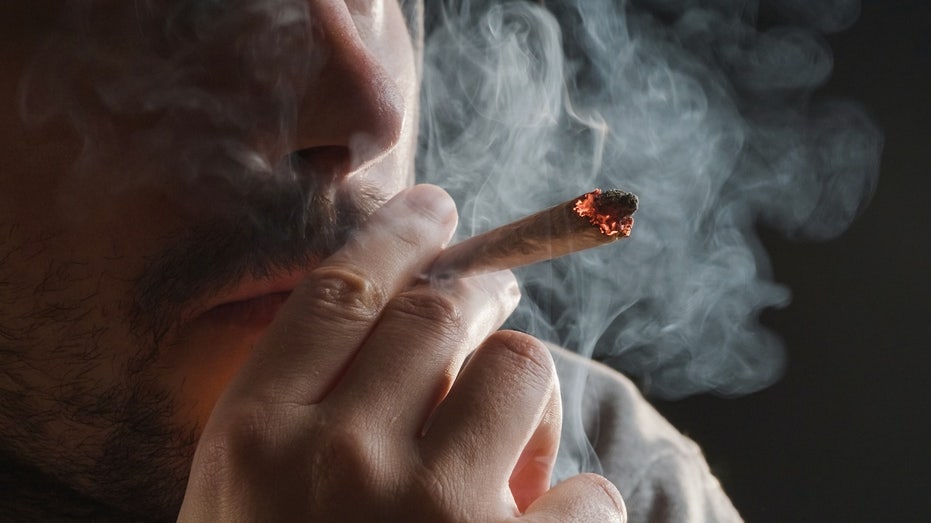Ditching Alcohol and Going 'California Sober' — Here's What You Need to Know

Sarah Johnson
March 3, 2025
Brief
The 'California sober' trend, popularized by celebrities, swaps alcohol for cannabis. Experts warn of potential risks and stress the importance of addressing addiction's root causes.
From Demi Lovato to Willie Nelson, the term "California sober" has been making waves as celebrities and everyday people redefine sobriety. But what exactly does it mean, and is it truly a healthier alternative to drinking alcohol?
"California sober" typically refers to giving up alcohol in favor of cannabis-based products, according to Dr. Cara A. Poland, an addiction medicine specialist at Michigan State University College of Human Medicine. While it might sound like a trendy West Coast lifestyle, experts are urging caution about its potential risks.
Singer Demi Lovato, who once embraced "California sober" after her near-fatal overdose, later admitted that complete sobriety—what she called "sober sober"—was the only path for her. Her experience highlights the complexity of the term and its varying interpretations.
Journalist Michelle Lhooq is credited with popularizing the phrase in a 2019 essay for Vice.com, where she described her decision to ditch harder substances in favor of marijuana and psychedelics upon moving to California. She explained that it was her way of finding balance in a world where traditional sobriety felt too rigid. Notably, marijuana was already legal in California at the time.
However, the concept isn’t without its critics. Dr. Lori Karan, director of the addiction medicine fellowship at Loma Linda University, warns that substituting one substance for another could perpetuate harmful behaviors. "Cannabis comes with its own set of psychiatric and medical risks, including memory issues, paranoia, and even psychosis," she explained.
Dr. Poland echoed this sentiment, emphasizing that replacing alcohol with cannabis doesn’t address the underlying emotional struggles often linked to substance use. She added, "People should be cautious with this idea of substituting substances, especially when neither is a validated treatment option for addiction."
Past studies have shown a concerning lack of awareness about the dangers of alcohol, which has been linked to at least seven types of cancer, including liver and breast cancer. Research indicates that more than 70% of American adults drank alcohol regularly in 2019 and 2020, yet less than half knew about its cancer risks. Surgeon General Vivek Murthy has even called for warning labels on alcoholic beverages to highlight these dangers.
For some, like Kim Gamez, founder of SOBER(ISH), a hemp-based beverage company, "California sober" offers a middle ground. Gamez shared how her mother, a recovering alcoholic, found social balance by replacing alcohol with hemp-infused cocktails. "It’s not about replacing one vice with another," Gamez said, "but finding a healthier alternative that works for you."
Still, experts like Dr. Karan caution against the growing public misinformation about cannabis, particularly given the increased potency of modern products compared to those in the 1970s. "More research is needed to fully understand the safety and long-term effects of cannabis use," she said.
For individuals struggling with addiction, the advice remains clear: consult a doctor first. Evidence-based treatments, including behavioral therapy and FDA-approved medications, offer safer and more effective solutions. According to the National Institute on Alcohol Abuse and Alcoholism, drugs like naltrexone and disulfiram can reduce cravings and help manage withdrawal symptoms.
The bottom line? While "California sober" might sound appealing, it’s not a one-size-fits-all solution. Sobriety, like health, is deeply personal—and what works for one person might not work for another. Experts are unanimous, though: addressing the root causes of addiction is key, and switching substances doesn’t solve the problem, it just reshuffles it.
Topics
Editor's Comments
The term 'California sober' is a fascinating reflection of how modern culture wrestles with sobriety and substance use. While it might seem like an upgrade from heavy drinking, swapping one substance for another without tackling the core emotional issues feels like trading a sinking ship for a leaky lifeboat. It’s also wild how little we know about the long-term effects of today’s ultra-potent cannabis products—definitely not the same stuff your grandparents smoked in the '70s!
Like this article? Share it with your friends!
If you find this article interesting, feel free to share it with your friends!
Thank you for your support! Sharing is the greatest encouragement for us.



